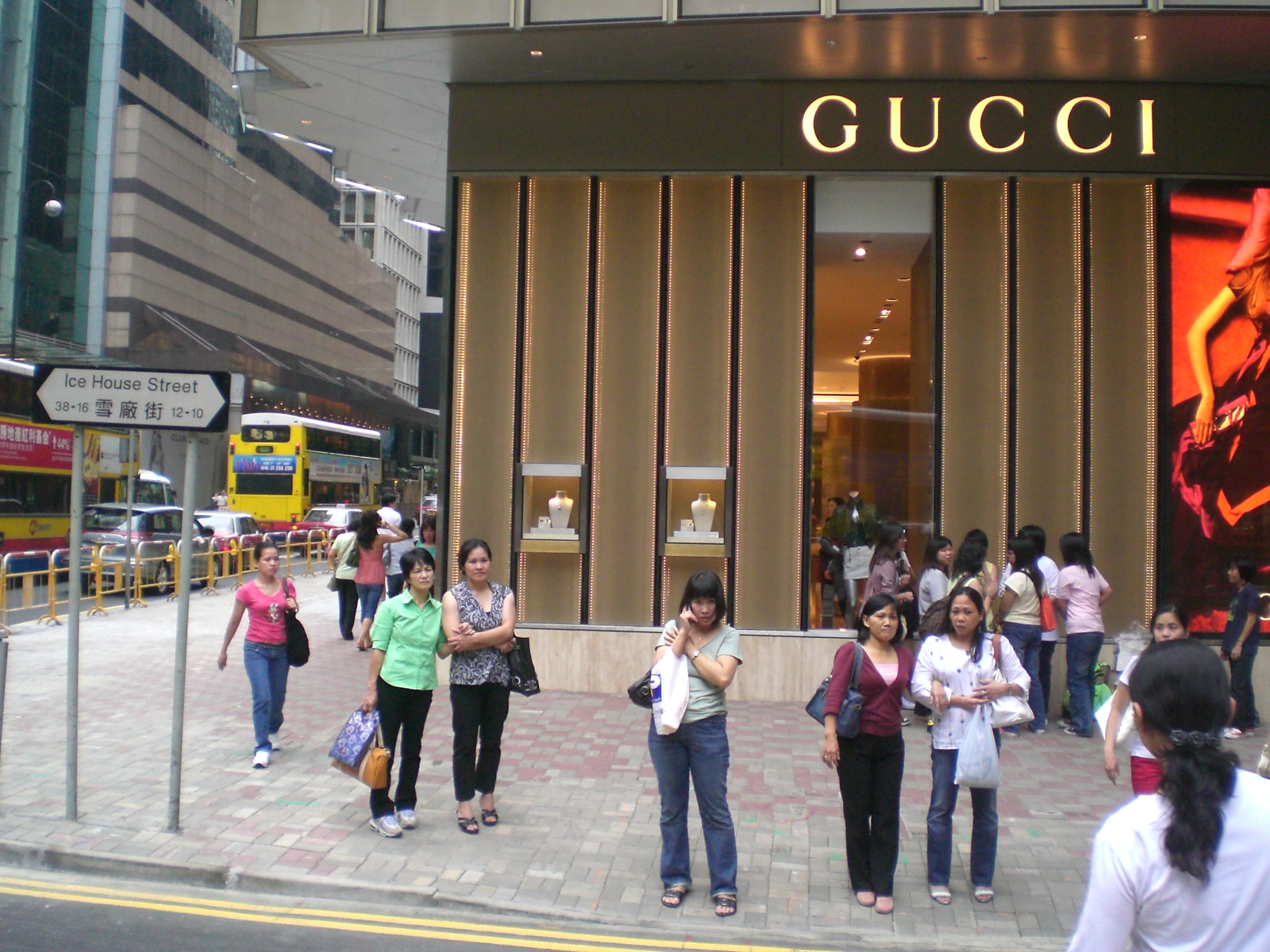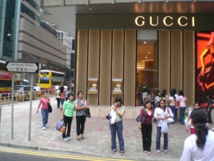Business in China has ceased to bring super-profits to Western manufacturers of luxury beverages, clothing and bags because of the Chinese stock market fall that has been going on for over a month. Global manufacturers of luxury become heavily dependent on Chinese consumers: today, local consumers account for nearly a third of global consumption of luxury goods, whereas 10 years ago, this figure does not exceed 3%. China central bank's decision last week to devalue the yuan added problems to the industry – imports became more expensive. More than 75% luxury goods, sold in China, are produced outside the country and, therefore, are subjected to high import duties. As a result, the difference between a Chinese and European store can be up to 30%, writes the FT.
Sales of French cognac Martell XO (the average price per bottle - 150 euros, the brand owned by Pernod Ricard) halved for the fiscal year ended June 30, 2015, with a less expensive Martell sold better. Recent Chinese stock market fall made the local user "celebrate great moments" less often, laments Gilles Bogaert, Pernod Ricard’s Managing Director of Finance. Pernod Ricard's total sales over the past year fell by 2% year on year; it follows from the statements of the company. Yet in recent months the sales were weak and the prospect of possible growth will become visible only after the Chinese New Year in February 2016, said Pernod Ricard’s Executive Director Alexander Ricard. The economic situation in China could undermine the status of the company's second-largest market. Pernod Ricard has only recently managed to recover from the previous shock: in 2013, Chinese President Xi Jinping held anti-corruption campaign and forbade officials to purchase luxury goods.
Swiss watch exports to China fell by 40% in July 2015 compared to the same period in 2014. Particularly, supply of watches worth more than 200 Swiss francs (about $ 207) were significantly reduced, according to the Federation of the Swiss Watch Industry. The brand Tag Heuer (belongs to group LVMH, which owns Louis Vuitton, Givenchy, Hennessy, Dior, Kenzo, Bulgari, etc.) has recently announced the closure of one of its stores in Hong Kong, due to lower demand.
In recent weeks, investors began selling shares of Western luxury companies, notes FT. For example, shares of LVMH, Remy Cointreau, Hermes and Kering in average fell by 13,1% from 1 August 2015, Swiss Richemont - by 11.7%, British Burberry - by 11.9%. Many analysts believe that the recession will only increase - volatility in the Chinese market will lead to a general deterioration in the economy and the reduction of wages.
Luxury brands must cut costs on opening new stores in China, and spend more on Internet commerce, says CEO of Bomoda company Brian Buchwald. Costs of Chinese consumers are growing, but not in China, he said.
source: ft.com
Sales of French cognac Martell XO (the average price per bottle - 150 euros, the brand owned by Pernod Ricard) halved for the fiscal year ended June 30, 2015, with a less expensive Martell sold better. Recent Chinese stock market fall made the local user "celebrate great moments" less often, laments Gilles Bogaert, Pernod Ricard’s Managing Director of Finance. Pernod Ricard's total sales over the past year fell by 2% year on year; it follows from the statements of the company. Yet in recent months the sales were weak and the prospect of possible growth will become visible only after the Chinese New Year in February 2016, said Pernod Ricard’s Executive Director Alexander Ricard. The economic situation in China could undermine the status of the company's second-largest market. Pernod Ricard has only recently managed to recover from the previous shock: in 2013, Chinese President Xi Jinping held anti-corruption campaign and forbade officials to purchase luxury goods.
Swiss watch exports to China fell by 40% in July 2015 compared to the same period in 2014. Particularly, supply of watches worth more than 200 Swiss francs (about $ 207) were significantly reduced, according to the Federation of the Swiss Watch Industry. The brand Tag Heuer (belongs to group LVMH, which owns Louis Vuitton, Givenchy, Hennessy, Dior, Kenzo, Bulgari, etc.) has recently announced the closure of one of its stores in Hong Kong, due to lower demand.
In recent weeks, investors began selling shares of Western luxury companies, notes FT. For example, shares of LVMH, Remy Cointreau, Hermes and Kering in average fell by 13,1% from 1 August 2015, Swiss Richemont - by 11.7%, British Burberry - by 11.9%. Many analysts believe that the recession will only increase - volatility in the Chinese market will lead to a general deterioration in the economy and the reduction of wages.
Luxury brands must cut costs on opening new stores in China, and spend more on Internet commerce, says CEO of Bomoda company Brian Buchwald. Costs of Chinese consumers are growing, but not in China, he said.
source: ft.com



















